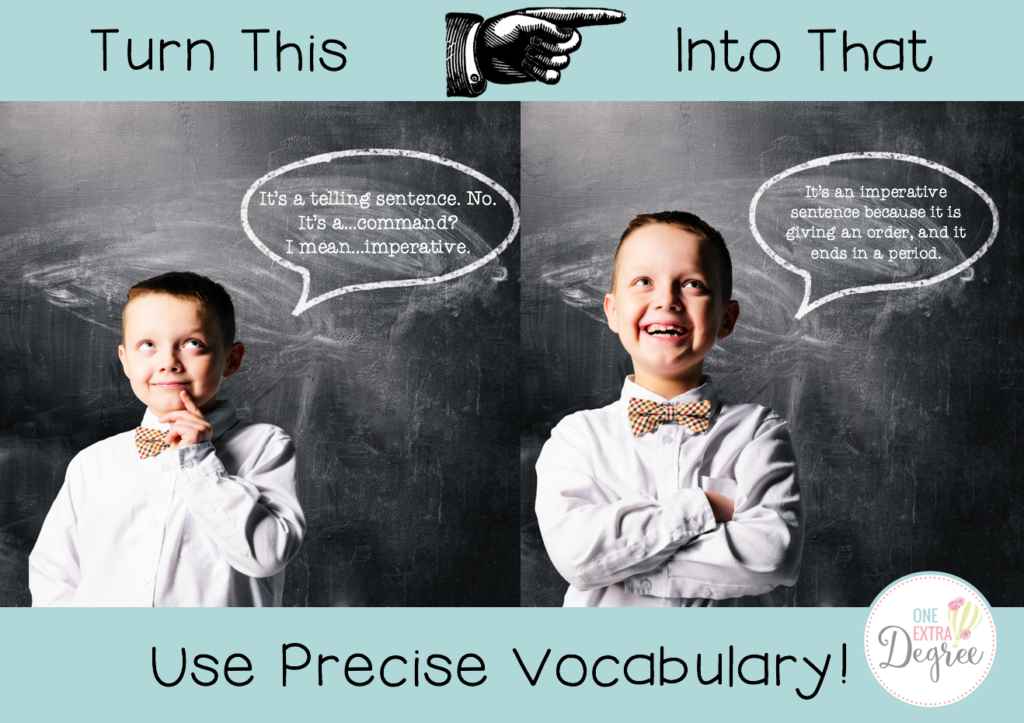First Grade: Johnny, today we are going to be talking about asking and telling sentences.
Second Grade: Okay, Johnny. We are going to be talking about sentences today, and I want you to be able to sort between a statement, a command, a question, and an exclamation. Let’s review!
Third Grade: Johnny! We are going to have so much fun today! We’re going to play a game of four corners to review the four types of sentences: interrogative, imperative, exclamatory, and declarative!

I mean, really. Does anyone else find that completely absurd, or is it just me? Why do we do this?! It is so illogical to me. I am constantly like, “Friends, another name for a statement is declarative. They are synonyms!” and answering questions like, “What is an interrogative sentence again?” This can be so defeating for kids, especially struggling students. Just when they start to be proficient with one set of terms, we throw another set of terms at them. If we were all using common language from the beginning, I could be focusing more on the content and less on the shifting terminology. I spend so much time explaining that an imperative sentence is a command when we could just call it imperative from day one. We collectively need to be using language that is scholarly and precise, and we need to use common language with our students.
I’m going to take this one step further and say that, ideally, vertical planning should be happening in schools. We SHOULD be having conversations with the grade levels above and below us to not only ensure gap closing but also to facilitate lessons that are cohesive and use common, standard terms with the kiddos we share. While I absolutely believe that we should be teaching our kids synonyms and shades of meaning, I do not believe that this should apply to academic vocabulary. If kids can memorize the names of forty dinosaurs, then certainly they can handle discussing academic words like “interrogative” with your support. I have been continually amazed by what my students were capable of when I didn’t automatically assume that something was out of reach and gave them the opportunity to stretch and thrive. Remember, you’re the model. What you say and how you say it becomes what they say and how they say it!

Leave a Reply